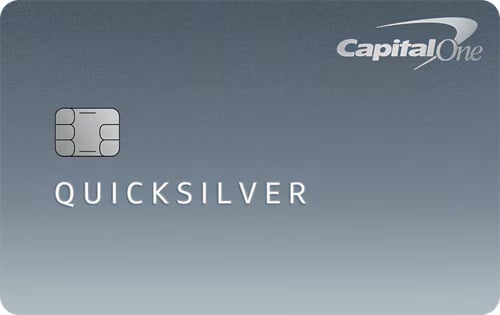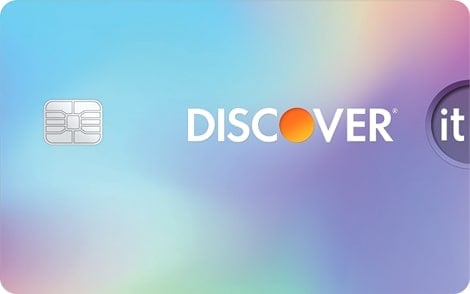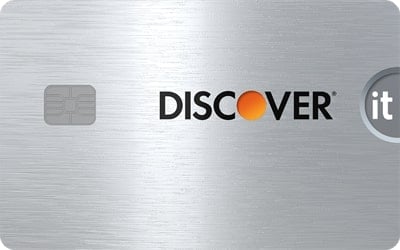Capital One vs. Discover Student Credit Cards: All Great Options for Young Adults
Both Capital One and Discover have excellent credit cards for students in their portfolios, though Discover’s lack of a credit score requirement means its cards are more accessible.

Many or all of the products on this page are from partners who compensate us when you click to or take an action on their website, but this does not influence our evaluations or ratings. Our opinions are our own.
Establishing good credit can be as important to college students as maintaining a good GPA. A credit card is one of the best ways to build a credit history and show that you can handle credit responsibly. Some of the most popular student credit cards are from Capital One and Discover. Both issuers offer two student cards that all have excellent perks for teenagers and young adults. Which card you choose will likely depend on your spending habits and credit score.
In February 2024, news broke that Capital One planned to acquire Discover. Read more about the potential merger here.
Earn $50 when you spend $100 in the first three months.
Earn $50 when you spend $100 in the first three months.
INTRO OFFER: Unlimited Cashback Match for all new cardmembers – only from Discover. Discover will automatically match all the cash back you’ve earned at the end of your first year! There’s no minimum spending or maximum rewards. You could turn $50 cash back into $100. Or turn $100 cash back into $200.
INTRO OFFER: Unlimited Cashback Match for all new cardmembers – only from Discover. Discover will automatically match all the cash back you’ve earned at the end of your first year! There’s no minimum spending or maximum rewards. You could turn $50 cash back into $100. Or turn $100 cash back into $200.
The ongoing APR is 18.49%-28.49% Variable APR
The ongoing APR is 18.49%-28.49% Variable APR
0% intro APR on Purchases for 6 months and 10.99% intro APR on Balance Transfers for 6 months, and then the ongoing APR of 16.49%-25.49% Variable APR
0% intro APR on Purchases for 6 months and 10.99% intro APR on Balance Transfers for 6 months, and then the ongoing APR of 16.49%-25.49% Variable APR
Capital One vs. Discover’s student cards: What’s the same
The student cards from Capital One and Discover are alike in many ways, all of them beneficial for the cardholder. Among the similarities:
No annual fee.
No foreign transaction fee.
Reporting to all three credit bureaus, Equifax, Experian and TransUnion.
Earn rewards.
Earn a welcome bonus.
The rewards rates and value of the welcome bonus vary across the four cards, but these differences can help prospective cardholders determine which card is the best fit.
Capital One vs. Discover’s student cards: What’s different
Credit score requirement
For many students, Capital One’s credit score requirement will be the deciding factor in a decision between a Capital One and Discover student card. Capital One requires at least fair credit, or a score between 630-689, to qualify for one of its student cards. Discover, on the other hand, approves applicants without a credit history, making it a more accessible option for students with bad or no credit.
Although Capital One and Discover's cards are marketed as "college student credit cards," simply being a student typically isn't enough to qualify for a credit card. For example, if you're under 21, issuers may require you to have a full-time income. Read more about student card requirements.
Rewards
Each Capital One and Discover student card has its own rewards structure, and some of these cards require more work than others to earn those rewards. Try to pick a card with rewards that align with your spending as well as the effort level you’re willing to put into managing a credit card.
The most low-maintenance card of the four is the Capital One Quicksilver Student Cash Rewards Credit Card. It earns an unlimited flat 1.5% cash-back rate on purchases.
The Capital One Savor Student Cash Rewards Credit Card doesn’t necessarily require work to earn rewards, but there are more rewards categories to remember. That card earns an unlimited 3% back on dining, entertainment, select streaming services and grocery stores, popular spending categories for many students. Other purchases earn 1%. Both Capital one cards also earn an unlimited 5% back on hotels, vacation rentals and rental cars booked through Capital One Travel.
The two Discover student cards require maintenance and a decent memory to maximize rewards. Both cards have caps on rewards in certain categories; it’s fine to spend beyond the cap, but you won’t earn the highest possible rewards rate after that. And, in the case of the Discover it® Student Cash Back, the rewards categories change every 3 months, and you must opt-in to them every quarter to earn the card’s top rate.
» BEST: Rewards credit cards
Welcome offer
Capital One and Discover offer welcome bonuses on their student cards, but they differ in terms of value and payout timeline.
The sign-up bonus on the Capital One cards are standard fare: Earn $50 when you spend $100 in the first three months. So, if you hit the spending requirement within the specific time frame, Capital One will issue your bonus within two billing cycles.
Discover’s welcome offer is nontraditional, and you’ll have to wait at least a year to cash in, but it could be worth the wait. Discover describes the offer this way: INTRO OFFER: Unlimited Cashback Match for all new cardmembers – only from Discover. Discover will automatically match all the cash back you’ve earned at the end of your first year! There’s no minimum spending or maximum rewards. You could turn $50 cash back into $100. Or turn $100 cash back into $200.
Admittedly, a year is a long time to wait for a lot of people and especially cash-strapped college students. But if you have the patience and don’t need extra cash right away, the welcome offers on the Discover cards could be worth more than those from Capital One.
Late payment forgiveness
Only Discover’s student cards waive the late fee on the first late payment, a rare perk among all credit cards. This leniency will surely be welcome to many college students who are credit card novices.
Intro APR offer
Discover’s student cards boast another perk absent in their Capital One counterparts: an introductory APR period for both purchases and balance transfers. Specifically, cardholders get a 0% intro APR on Purchases for 6 months and 10.99% intro APR on Balance Transfers for 6 months, and then the ongoing APR of 16.49%-25.49% Variable APR.
Which card should you get?
The student cards from Discover and Capital One are all excellent products that have many benefits found in nonstudent cards, but you don’t need excellent (or even good) credit to get them.
Before applying, check your credit score. Due to Capital One’s credit score requirement, those with less than fair credit can narrow down their options to either Discover student card. If you meet the eligibility requirements for all four credit cards, then you’ll need to decide which card’s benefits you want and which you can live without.
Find the right credit card for you.
Whether you want to pay less interest or earn more rewards, the right card's out there. Just answer a few questions and we'll narrow the search for you.









